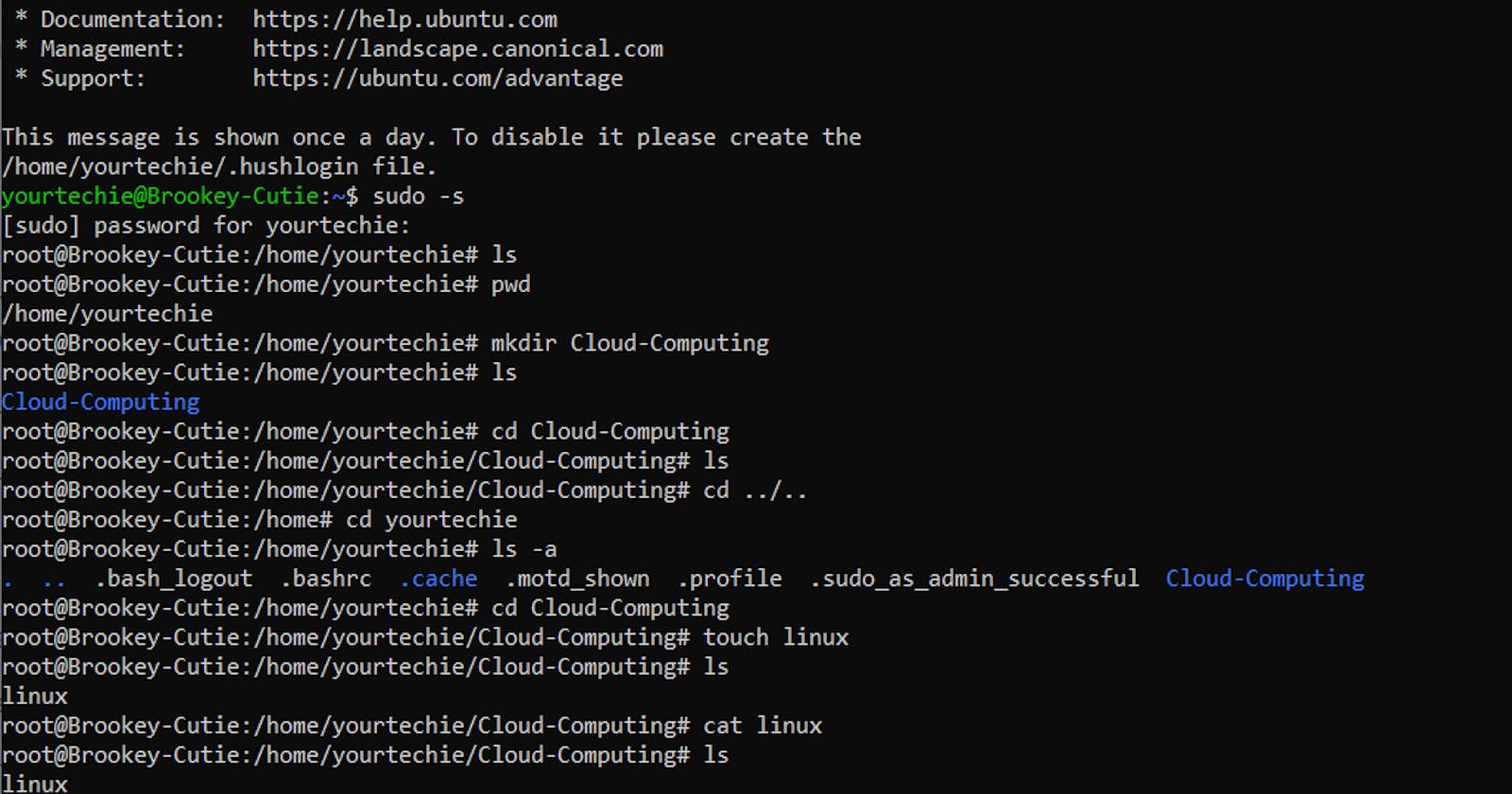Linux is the operating system of choice for many DevOps professionals due to its stability, security, and open-source nature.
Mastering Linux commands is crucial for effective DevOps practices as it empowers engineers to streamline tasks, automate processes, and manage infrastructure efficiently.
In this article, we'll explore a list of essential Linux commands that are indispensable for DevOps practitioners.
ls - List Files and Directories: The
lscommand is fundamental for navigating the file system. It displays the contents of a directory, allowing users to view files and directories. Common flags include-lfor detailed information and-ato show hidden files.ls -lcd - Change Directory: The
cdcommand is used to change the current working directory. Navigating through the file system is a routine task in DevOps, and masteringcdis essential.cd /path/to/directorypwd - Print Working Directory: To know the current directory path, use the
pwdcommand. It helps in understanding the current context while working on the command line.pwdcp - Copy Files and Directories: The
cpcommand allows the copying of files and directories. This is vital for creating backups, duplicating files, or deploying configuration files.cp source_file destinationmv - Move or Rename Files: The
mvcommand is versatile, enabling users to both move and rename files or directories. This is valuable for organizing and managing the file system efficiently.mv old_name new_namerm - Remove Files or Directories: Deleting unnecessary files or directories is a common task. The
rmcommand, used with caution, helps in removing files and directories.rm file_namemkdir - Create Directories: Creating directories is essential for organizing code, logs, or any other project-related files. The
mkdircommand serves this purpose.mkdir directory_nametouch - Create Empty Files: The
touchcommand is useful for creating empty files, often needed when initializing configuration files or placeholders.touch file_namegrep - Search Text in Files: The
grepcommand is powerful for searching text within files. DevOps engineers often use it for log analysis, configuration file parsing, and more.grep "search_term" file_namevi or nano - Text Editors: A solid understanding of a terminal-based text editor like
viornanois crucial for quick edits to configuration files or scripts.vi file_namechmod - Change File Permissions: Managing file permissions is crucial for securing sensitive data. The
chmodcommand allows users to modify permissions for files and directories.chmod 755 file_namechown - Change File Ownership: In a multi-user environment, changing file ownership might be necessary. The
chowncommand facilitates this process.chown user:group file_nameps - Process Status: Monitoring processes is essential in DevOps. The
pscommand provides information about active processes on the system.ps auxtop or htop - System Monitoring: For a real-time overview of system performance, commands like
toporhtopare invaluable. They display information about CPU, memory, and processes.topdf - Disk Free: Checking disk space is critical for preventing system outages. The
dfcommand provides information about disk space usage.df -hdu - Disk Usage: To determine the disk space used by specific directories, the
ducommand comes in handy.du -sh /path/to/directorywget/curl - Download Files from the Internet:
DevOps often involves fetching files or scripts from the web. Both
wgetandcurlare commands that facilitate downloading resources.bashCopy codewget http://example.com/file.zipbashCopy codecurl -O http://example.com/file.zipssh - Secure Shell:
The
sshcommand is vital for secure remote access to servers. It enables encrypted communication and remote command execution.bashCopy codessh username@remote_serveriptables - Firewall Configuration:
cssCopy codeFor controlling and configuring the Linux kernel firewall, the `iptables` command is essential. It allows you to set rules for packet filtering, network address translation, and more. ```bash sudo iptables -A INPUT -p tcp --dport 22 -j ACCEPT ```
Common sudo Commands in DevOps:
In the Linux world, the sudo command is a powerful tool that allows users to execute commands with elevated privileges. The term "sudo" stands for "superuser do," and it enables a permitted user to execute a command as the superuser (root) or another user, according to the security policy configured in the sudoers file.
File and Directory Operations:
Copy a file with elevated permissions:
sudo cp source_file destinationRemove a file or directory with elevated permissions:
sudo rm -r file_or_directory
Package Management:
Install or update packages:
sudo apt-get install package_nameUpdate the package database:
sudo apt-get update
System Configuration:
Edit system configuration files with a text editor:
sudo nano /etc/config_file.confRestart a service:
sudo systemctl restart service_name
User Management:
Add a new user:
sudo adduser new_usernameChange a user's password:
sudo passwd username
System Monitoring:
View real-time system information:
sudo topCheck disk space usage:
sudo df -h
Mastering these essential Linux commands is a foundational step for any DevOps engineer. From managing files and directories to monitoring system performance, these commands empower professionals to efficiently navigate and control Linux-based systems.
Continuous learning and practical application of these commands contribute to a robust skill set for effective DevOps practices.
